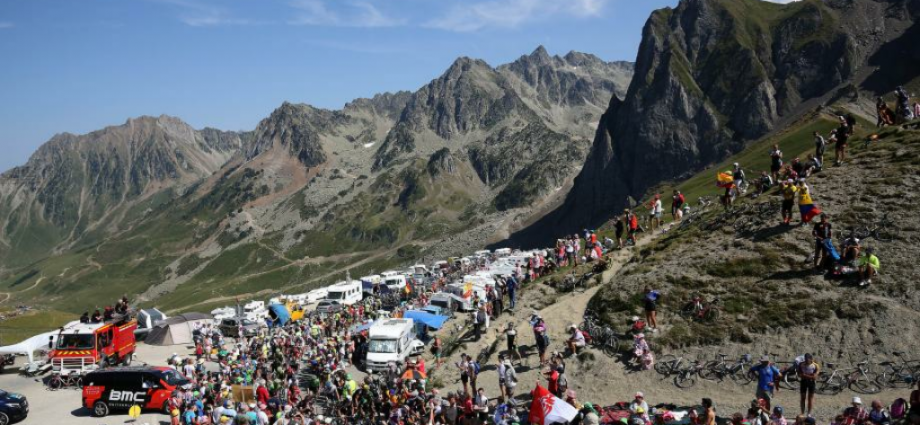Always look on the bright side of life. I might be not so terrible for the international professional road cycling a bit re-shaking of system.
Tour de France is the first Grand Tour
Although there are plenty of races during the season, the Tour de France is arguably THE race, that makes most people interested in cycling events. A new and enthusiastic cycling fan evidently want to see more races, but the cycling calendar offers fewer opportunities in the rest of the season (August to October) than in the spring months. Then the off-season comes, and many of this kind of (I would say temporary) cycling fans lost their interest. And then comes summer again, and they might start to watch the Tour de France. But most od them probably never get out of this loop.
The rescheduled season in 2020 provides a unique opportunity to break this wheel, as the Tour de France has a relatively early place in the race calendar. The World Championship comes immediatelly after it, and also the Giro d’Italia starts very soon. Meanwhile, during the weeks of the Italian three-week race, it’s also easier to pay attention to the cobbled classics.
In the end, this unique situation can help a bit more to understand cycling is far more than just the Tour de France.
Cycling’s Super Sunday
From August to November there will be held cycling races of a time period normally of seven months (March to October) This will be a very busy three and a half months, nevertheless, the World Tour calendar provides a really big spectacle at almost the end of this period. On 25th October three important races will be held at the same time
- the last stage of the Giro d’Italia
- 9th stage of Vuelta a Espana (hilltop finish on the Tourmalet)
- Paris-Roubaix
Three different types of racing, three different race situations. This is an extraordinary chance to learn how versatile the world of professional road cycling can be. The situation can demonstrate the different types of cyclings excellently. It can help to have a deeper look into the different dynamics of different types of races.
“Once in a lifetime” chance for the riders
Not only the majority of the fans think the Tour de France is the highlight of the season, but of course, many riders are focusing on this particular event, and adjust their building-up-program to be in shape in July.
That means, there are cyclists who never attend certain races to avoid the risk of injuries. More precisely, there are GC riders or/and climbers they don’t attend Paris-Roubaix because they have almost no chance to have a good result, but the risk of being crashed and getting injured is bigger than at other races.
But because the Tour de France will be held in the first half of September, and Paris-Roubaix is the last big one day classic of this extraordinary season, there is a big chance to see riders in the peloton of the Hell of the North, who usually don’t visit the cobbles of North-France (only when they are part of the Tour de France).
Paris-Roubaix is the Queen of the Races, after all, and it’s quite understandable, that even riders with fragile bodytype want to try out what is like to race this event and give everything that they are able to, although they will have probably not many chances again the specialists of the cobbles.
More unpredictable races
Although the cyclists are highly professional athletes, and they did all their best even during the weeks of the lockdown, nobody knows what effects the extraordinary circumstances will have on the performance of the riders.
Another reason, why it will be harder to predict the races, that the they following each other not in the usual order. In a normal situation, there is a rhythm, a special dynamic of the events coming after each other. Now, it is destroyed, and nobody knows how it will look like racing, for example, Milano-Sanremo and Il Lombardia back to back.
And, of course, as I mentioned before, there will be races with a quite unusual peloton..
